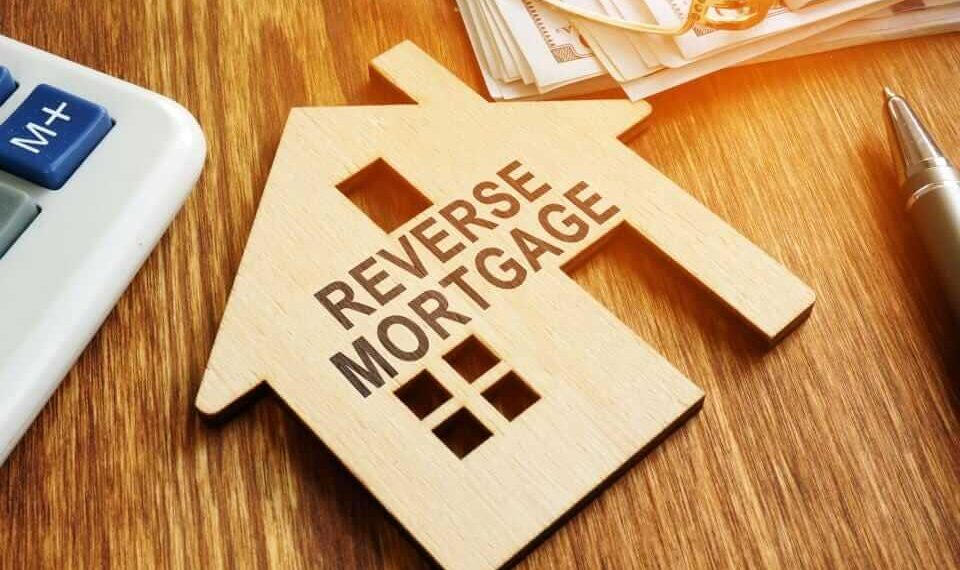A reverse mortgage is essentially a loan with the home serving as the collateral. A homeowner trades the equity of their home in exchange for cash. Reverse mortgages differ from other loans because there is no monthly payment. The mortgage is paid in full when a homeowner passes away or when they sell the home. Borrowers have to be a minimum of 55 years old (previously the minimum was 62 years old) to take out a reverse mortgage, and they are typically done to supplement a person’s livelihood during retirement. This type of loan developed because many retired people own just their home and very little else in their retirement portfolio.
Table of Contents
Should You Get a Reverse Mortgage?
A reverse mortgage can be a great option for some people and not as great for others. There are a lot of reverse mortgage pros and cons to consider before making a choice to obtain a loan. Looking at the facts of what a reverse mortgage entails can be a great way to help make this decision.
High Minimum Age Requirement
Reverse mortgages were primarily reserved for homeowners that were 62 or older, but this has recently been changed to 55. The loan was created to help lessen the burden of retirement, moving, and monthly payments. If you are not 55 or older, reverse mortgages are not for you.
You Must Own Your Home AND Live In It
Reverse mortgages are reserved for primary residents only. You cannot take a reverse mortgage out on other investment properties, including vacation properties. To be considered a primary residence, you must reside in the property for a minimum of six months. While you take a reverse mortgage out, you are still required to pay home obligation fees. These include but are not limited to homeowner’s insurance, property taxes, and mortgage insurance. Depending on your financial situation, your lender may require a part of the loan to be set aside for these responsibilities.
There Is a Limit, and You Cannot Borrow the Whole Thing
The amount a borrower can borrow against their mortgage depends on multiple factors, including age, equity, and remaining mortgage. To get an idea of the amount that you can get, a reverse mortgage calculator is used.
As of 2022, the FHA reverse mortgage limit is $970,800 . This is the maximum legal amount your lender can credit your home’s value, but your actual reverse mortgage will depend on many factors. As a rule of thumb, reverse mortgages are rarely more than 80% of the home’s value, so you cannot get a reverse mortgage on the worth of the entirety of your home. The older you are, the larger percentage a lender will typically provide for you. The ideal applicant would be an older homeowner that owns their home completely.
Payment Options
Reverse mortgage payments can also be received as a lump sum, tenure payments, term payments, and a credit line. You can also receive a mixture of these options. Regardless of what option you choose, a reverse mortgage is still a negative amortization loan. This means all reverse mortgages accrue interest, and when it is time to pay the loan back, you will always owe more than what you took out.
So…Should You Get a Reverse Mortgage?
These are not all the facts of a reverse mortgage, but the general idea has been approached. Before taking out a reverse mortgage, borrowers will be required to go through a counseling session that explicitly explains everything about a reverse mortgage. If you are still unsure if you should contact a lender, here is some additional information:
People Who Should Consider a Reverse Mortgage
- You are older and have lived in your home for quite a while. You do not want to move, downsize, or pass on your home.
- You have a retirement account but are depleting it at a faster rate than you had predicted and your most valuable retirement asset is your home.
- Your home is either paid off completely or you have considerable equity in it.
If any (or ideally all three) of these apply to you, it could be a great idea to contact a lender and consider your options for a reverse mortgage.
People Who Should NOT Consider a Reverse Mortgage
- You do not have a considerable amount of equity in your home.
- You have not been given a great loan offer.
- Your savings is sufficient to cover your expenses.
Parting Words
Reverse mortgages can be a great fit for some individuals, but like any loan program, there needs to be great care and consideration that goes into it. They can help older Americans live a more comfortable lifestyle, but there are also other loans out there that could better fit you. Explore your options and learn the facts.

